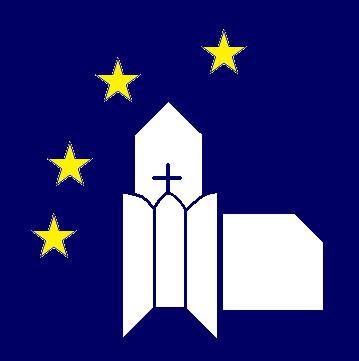10 May 2013, Madrid, Spain
The workshop was attended by 6 delegates + 2 interpreters.
Jean Garnier made an introduction about the Africa Workshop with the topics that Gérard Warénghem considered most important, namely
Supporting civil society in Africa
IACAT International Federation of Christian Associations for the Abolition of Torture
and related to this:
Persecution of Albinos
Ritual Crimes (some African governments forbid demonstrations against ritual crimes)
What can we do?
- The US has a law that multinationals in the extractive industries (oil & gas + minerals) must declare country by country their payments to governments in the host countries to enable civil societies to know about government income and ensure money is spent on infrastructures.
- The EU is now studying a similar law but also including forestry & communal rights on land. It is very important that the EN-RE lobbies in favour of this law not only in the EP`& Council of Europe but also with the governments of our own countries.
- It is important to interview Africans & their organizations who speak up about problems in their countries and to photograph them since this notoriety by foreign organizations protects them from their own governments.
- FUNDACION SUR, the Spanish organization of the White Fathers which has many small projects and which is very willing to work with the EN-RE about African problems generally. See their bimonthly review "Cuadernos"
- Other organizations involved with African problems and immigrants:
- The Africa Workshop of the EN-RE will work in each country with other similar organizations to prepare documents for the Council of Europe.
- We must denounce any and every problem relating to the African immigrants in our countries and bring up these questions in the Council of Europe and European Parliament.
- Useful methods of explaining about the "illegal" legalistic detention centres of immigrants without papers include Circles of Silence, protest marches, information handouts, hunger strikes and, above all, the maximum interchange of information amongst the member groups of the EN-RE.
Summarised by Nevenka & Hugo 10/5/13
POSTSCRIPT 15/5/13
In the above report, I forgot to explain in detail about the FPIC (FREE PRIOR INFORMED CONSENT) cards I placed on everyone's place on Friday morning:
These are produced in several languages including English, French, Dutch, Indonesian, Vietnamese etc., and a Portuguese version will be available soon and the contact person for these useful guidelines for peasant communities faced with the unexpected arrival of a multinational project in their communal lands, is
Christina Hill at Oxfam Australia office in Melbourne. If you click on the page from Christina below you can download the FPIC information in the languages you understand. Note that a Portuguese edition is also being prepared.
Christina's contact details are:
Christina Hill | Mining Advocacy Coordinator | Oxfam Australia
132-138 Leicester Street, Carlton VIC 3053
Tel: +613 9289 9311 | Fax: +613 9347 1495 | www.oxfam.org.au
and the FPIC and addtitional useful information website is:
I believe we can help local rural communities in Africa, Latin America and elsewhere by networking throughout the EN-RE, Council of Europe and allied organizations.
As contact person for CCBM with Publish What You Pay I receive masses of emails from PWYP members in Africa, Europe, USA etc. These messages are mainly in English & French and my colleagues in our Social Movements Commission only speak Spanish.
What I would like to do would be to get the EN-RE's Atelier Afrique-Africa Workshop registered at PWYP as a google group so that members would then receive all these e-mails and we could decide which projects to work on.
As an example: I sent the FPIC to the PWYP delegate in Kenya who asked What can I do to help the peasants in Lamu? Recently he posted a lawyers proceedings against a multinational in Lamu for encroaching on communal property.
I do realise we need to learn how to learn Advocacy to know how to approach multinationals both in the field and at their home base but we can be assured assistance from Revenue Watch Institute, Publish What You Pay and other organizations.
First of all we need to know who of you (and/or your colleagues) are interested in working with Jean, Hélène and I in this project?
